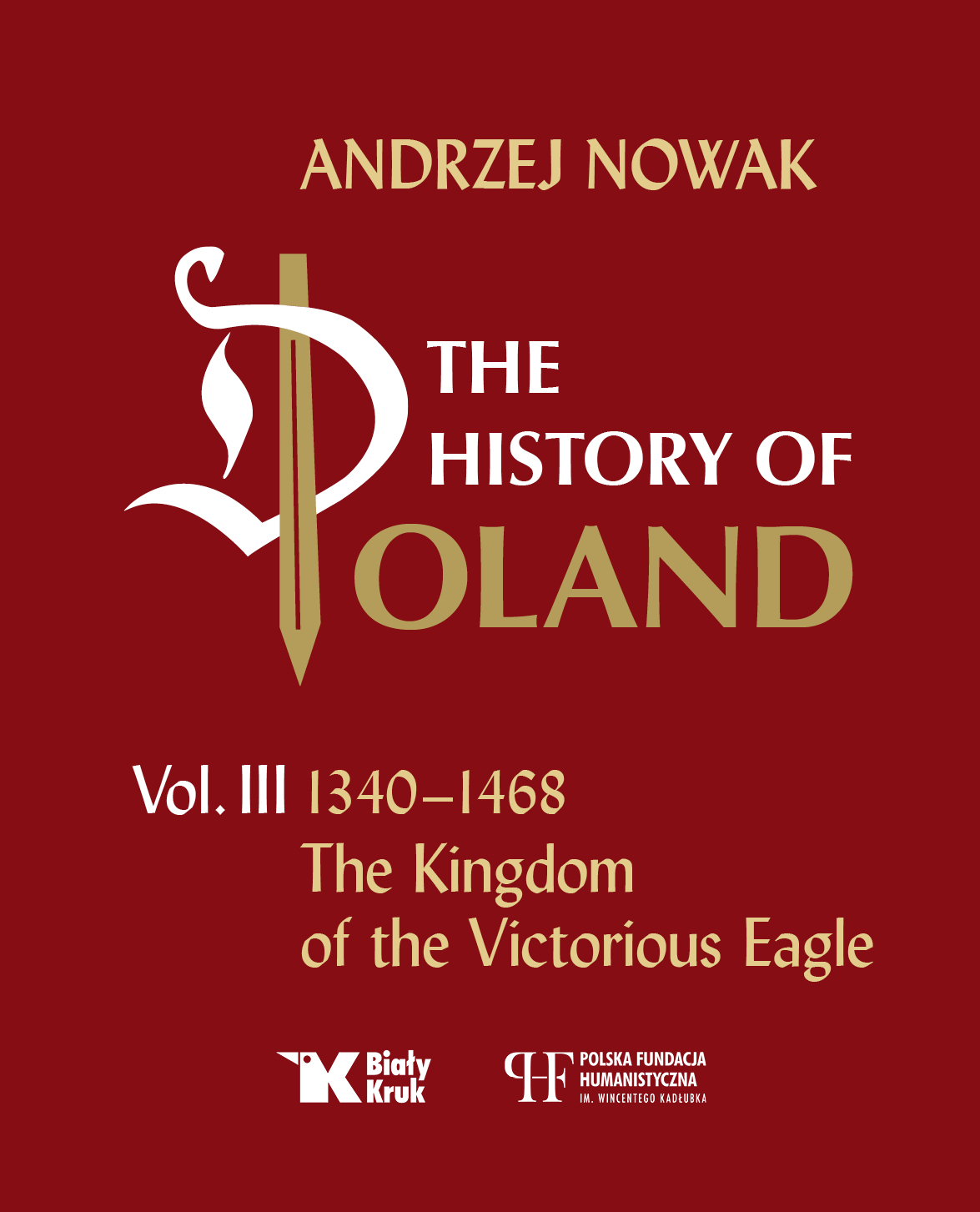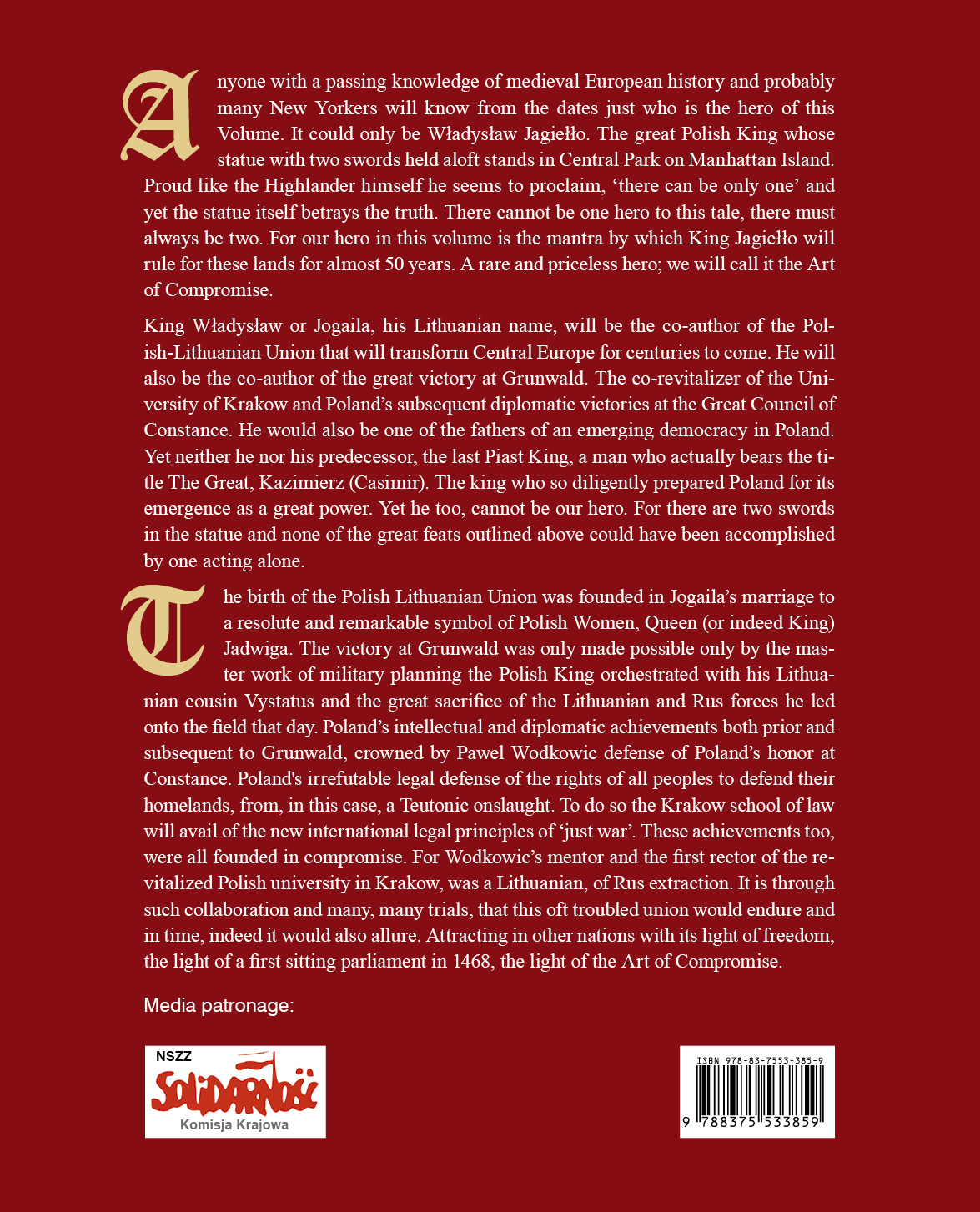The History of Poland - t. 3
Anyone with a passing knowledge of medieval European history and probably many New Yorkers will know from the dates just who is the hero of this Volume. It could only be Władysław Jagiełło. The great Polish King whose statue with two swords held aloft stands in Central Park on Manhattan Island. Proud like the Highlander himself he seems to proclaim, ‘there can be only one’ and yet the statue itself betrays the truth. There cannot be one hero to this tale, there must always be two. For our hero in this volume is the mantra by which King Jagiełło will rule for these lands for almost 50 years. A rare and priceless hero; we will call it the Art of Compromise.
King Władysław or Jogaila, his Lithuanian name, will be the co-author of the Polish-Lithuanian Union that will transform Central Europe for centuries to come. He will also be the co-author of the great victory at Grunwald. The co-revitalizer of the University of Krakow and Poland’s subsequent diplomatic victories at the Great Council of Constance. He would also be one of the fathers of an emerging democracy in Poland. Yet neither he nor his predecessor, the last Piast King, a man who actually bears the title The Great, Kazimierz (Casimir). The king who so diligently prepared Poland for its emergence as a great power. Yet he too, cannot be our hero. For there are two swords in the statue and none of the great feats outlined above could have been accomplished by one acting alone.
The birth of the Polish Lithuanian Union was founded in Jogaila’s marriage to a resolute and remarkable symbol of Polish Women, Queen (or indeed King) Jadwiga. The victory at Grunwald was only made possible only by the master work of military planning the Polish King orchestrated with his Lithuanian cousin Vystatus and the great sacrifice of the Lithuanian and Rus forces he led onto the field that day. Poland’s intellectual and diplomatic achievements both prior and subsequent to Grunwald, crowned by Pawel Wodkowic defense of Poland’s honor at Constance. Poland's irrefutable legal defense of the rights of all peoples to defend their homelands, from, in this case, a Teutonic onslaught. To do so the Krakow school of law will avail of the new international legal principles of ‘just war’. These achievements too, were all founded in compromise. For Wodkowic’s mentor and the first rector of the revitalized Polish university in Krakow, was a Lithuanian, of Rus extraction. It is through such collaboration and many, many trials, that this oft troubled union would endure and in time, indeed it would also allure. Attracting in other nations with its light of freedom, the light of a first sitting parliament in 1468, the light of the Art of Compromise.
476 pages, ISBN 978-83-7553-385-9

